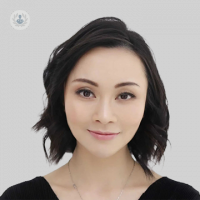Understanding acne: A comprehensive guide to clear and healthy skin
Escrito por:Acne is a widespread skin condition affecting millions globally and can have a highly negative impact on people’s self-esteem. Whether through in-clinic treatments or skincare products, comprehending the root causes of acne is essential for optimal results.
Expert in aesthetic medicine Dr Tracy Xu gives us an insight into the effective management and treatment of acne.

What is Acne?
Acne arises when hair follicles become congested with oil and dead skin cells, leading to the formation of pimples, blackheads, whiteheads, and even cysts, commonly occurring on the face, neck, chest, back, and shoulders.
The Importance of Prevention and Treatment
Without proper skincare or professional advice, acne can leave scars and hyperpigmentation, causing ongoing distress. The emotional toll can be considerable, affecting self-confidence and comfort with one's skin. While professional help is effective, patience is key during the treatment process.
Understanding the Causes of Acne
Several key factors contribute to acne development, including the following issues:
- Excessive Sebum Production: Overactive sebaceous glands produce excess oil, leading to clogged follicles and acne.
- Dead Skin Cells: The mixture of dead cells with surplus oil blocks follicles, promoting acne.
- Bacteria: The bacterium Propionibacterium acnes, found on the skin, multiplies in clogged follicles, causing inflammation and acne.
- Hormonal Changes: Hormonal shifts during puberty, menstruation, pregnancy, or certain medical conditions can trigger acne.
- Diet and Lifestyle: Consuming high-glycemic foods and dairy, and experiencing chronic stress may worsen acne.
Identifying and Managing Skin Blemishes
Spots and acne have common root causes, yet they can appear in diverse sizes and colours. Let's delve into the various types of spots you may come across:
- Whiteheads: Small, flesh-coloured or white bumps beneath the skin's surface.
- Blackheads: Dark spots on the skin's surface caused by clogged pores.
- Papules: Red, tender spots on the skin's surface, inflamed due to blocked pores.
- Pustules: Red-based spots with a white or yellow centre containing pus, sometimes sensitive and painful.
- Nodules: Larger, painful pimples deeply embedded in the skin, causing discomfort.
- Cysts: Severe spots, painful, pus-filled, deeply rooted, with scarring potential if not treated properly.
Effective Spot Management
Dealing with spots can be frustrating, but effective treatments are available. Some of the following tips can help you to manage your acne:
- Gentle Cleansing: Use a mild cleanser twice daily to remove dirt and excess oil.
- Avoid Picking: Refrain from squeezing spots to prevent worsening inflammation and scarring.
- Topical Treatments: Professionally-formulated products with ingredients like benzoyl peroxide, salicylic acid, or retinoids help unclog pores and reduce inflammation.
- Prescription Medications: Dermatologists may prescribe oral retinoids, contraceptives, antibiotics, or stronger topicals for severe cases.
- In-clinic Treatments: Various treatments, including chemical peels, microneedling, radiofrequency microneedling, and laser therapy, target acne and rejuvenate the skin.
- Skincare Routine: Consistent use of gentle cleansers, non-comedogenic products, and sunscreen.
- Lifestyle Adjustments: Adopt a balanced diet, exercise, and stress management for overall skin health.
It is important to remember that each person's skin is unique. A combination of patience and a tailored skincare routine can lead to clearer, healthier skin and renewed confidence. Prioritise gentle care and seek professional guidance as needed for a personalised journey toward better skin.
If you would like to book a consultation with Dr Xu, simply visit her Top Doctors profile today


